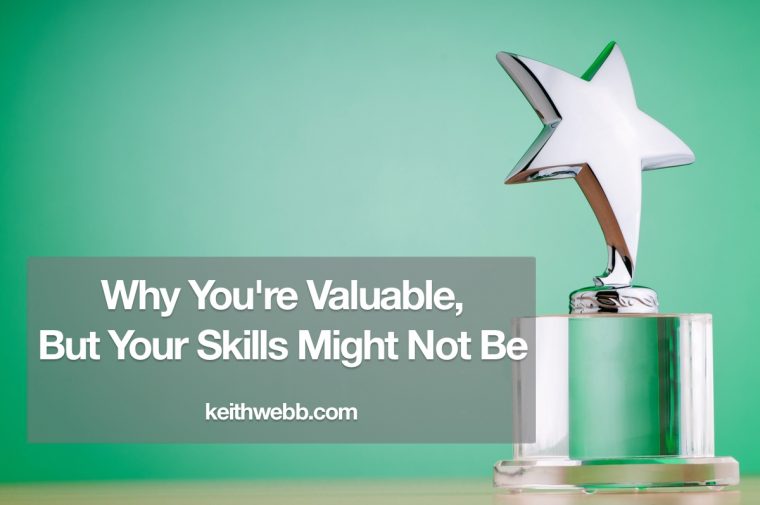With every kid getting a trophy just for participating, we’re confusing the value of the person with the value of their contribution. Here’s why you’re valuable but your skills might not be, and what to do about it.

“I’m worth much more than this salary,” a disgruntled worked said to his manager.
She replied, “Yes you are. Unfortunately, your skills are not.” She went on, “If you improve in the areas I’ve asked you to, then the results of your contribution will justify a salary increase.”
The worker answered, “I’ll do that.” And complained how unfairly treated he was to anyone who would listen.
Two Dimensions of Equality
Equality is a raging topic right now. There are tensions between rich and poor, opportunity and lack of, and social prejudice which promotes certain types of people ahead of others.
We need to differentiate two dimensions of equality:
- Each person is inherently valuable. The Declaration of Independence states it this way, “We hold these truths to be self-evident, that all men are created equal, that they are endowed by their Creator with certain unalienable Rights, that among these are Life, Liberty and the pursuit of Happiness.” Because you are a person, you are valuable. And that value is equal to everyone else.
- Each person is rewarded according to their contribution. Each person has skills and abilities. We apply those skills in different ways and with varying degrees of success. Society rewards us according to the perceived value of our contribution. It’s possible to improve our skills and work differently to increase our reward. Our contribution is not equal to everyone else’s.
One more thing, it’s important to recognize the playing field is not level.
Leveling The Playing Field
A level playing field is not only fair, it’s important for our continued mutual prosperity.
My neighbor Bill Gates (he lives 8 miles from me) used his skills to become the richest person in the world. He created a series of products that we wanted to buy, Microsoft software.
Now in his “retirement” years, Gates is giving most of his money away. Not in handouts, but in ways that will level the playing field to provide opportunity. The motto of the Bill and Melinda Gates Foundation is “All Lives Have Equal Value.” The foundation works tirelessly to provide opportunity by stomping out diseases and providing education around the world.
Where many go wrong in their pursuit of equality, justice, and fairness is to confuse equal value with equal contribution and reward.
We can and should provide opportunity to learn, grow, and contribute in new ways. In the end, what people do with their opportunities will determine the rewards.
Equal Value Is Not The Same As Equal Contribution
The story of the worker at the beginning of this article highlights the misplaced notation that our inherent value as human beings demands an equal reward. It’s not going to happen. And it shouldn’t.
Unequal reward forces us to change, grow, and improve. And that’s a good thing!
There’s a strong lazy streak in most of us that looks for the easiest way. If everything was handed to me, I wouldn’t put out extra effort.
Rather than demand to receive what we haven’t worked for, we have the opportunity to learn, grow, and change our contribution.
- Change your mindset to be a contributor.
- Improve your communication abilities, as this area touches all others.
- Learn new skills through informal and formal education.
- Take initiative to produce something and get it out to the world.
You have little control over the world around you. However, you can control your own mindset and actions. You can choose to continue learning. You can choose to contribute above and beyond.
Your value is equal to everyone else, but your contribution and results are not. If you want a different reward, improve your skills, change your contribution, and produce different results.
Question: In what ways could you change your contribution? You can leave a comment by clicking here.


Please note: I reserve the right to delete comments that are offensive or off-topic. You own your comments but give me permission to use them. See My Comments Policy. Read my Permissions Policy to know how you can use my posts.